#Birth of a Nation
Text
Rb for sample size, ect ect
#birth of a nation#movies#tumblr polls#dimond speaks#if you dont know what this movie is dont look it up btw its BAD.#not in the badly written sense i mean in the racism sense.#like PLEASE DONT WATCH IT IF YOU CAN AVOID IT.
9 notes
·
View notes
Text

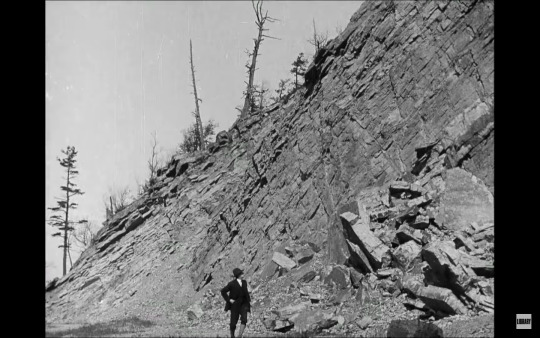
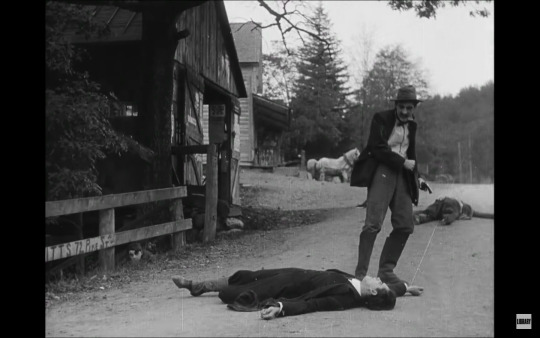
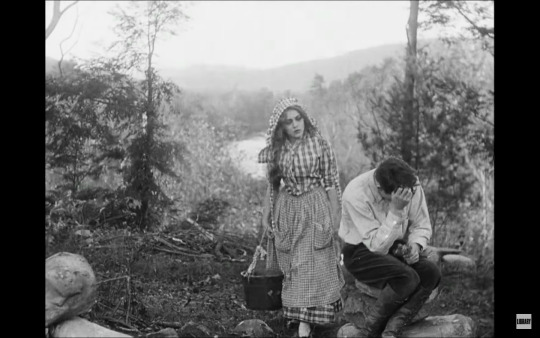
The Mountaineer's Honor (D.W. Griffith, 1909)
8 notes
·
View notes
Text


Armie as Samuel Turner
The Birth of a Nation (2016)
Armie said being on the set of the film "Birth of a Nation" was not as fun other movies because of the film’s extremely weighty topics.
"It’s hard, man. It was not a fun movie to make in the sense of jokey, jokey, everyone’s just on the set laughing and having a good time. It deals with really heavy subject matter. But you know, we owed it to the people involved in the rebellion, and we owed it to our own country’s history to be completely honest with it and sort of show the reality of what life was then."
Source: Good Morning America
64 notes
·
View notes
Text
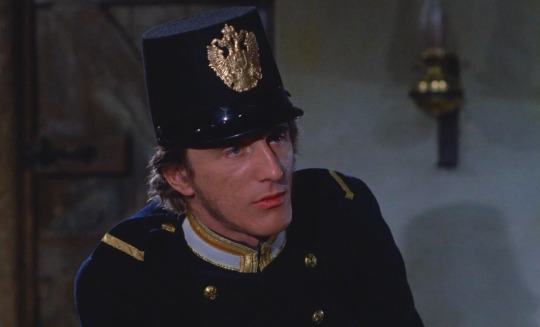

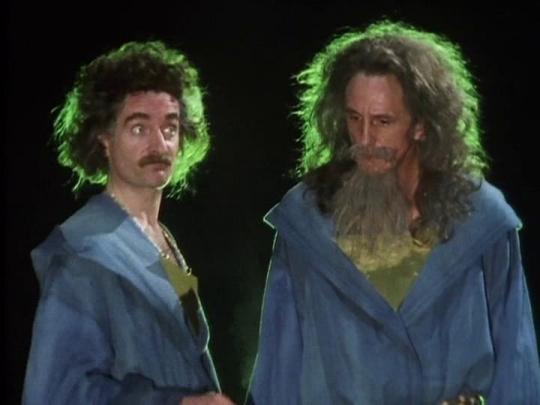

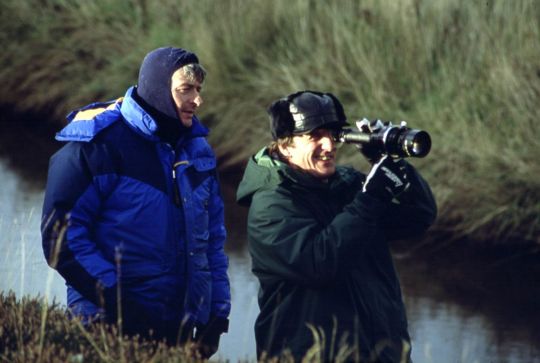


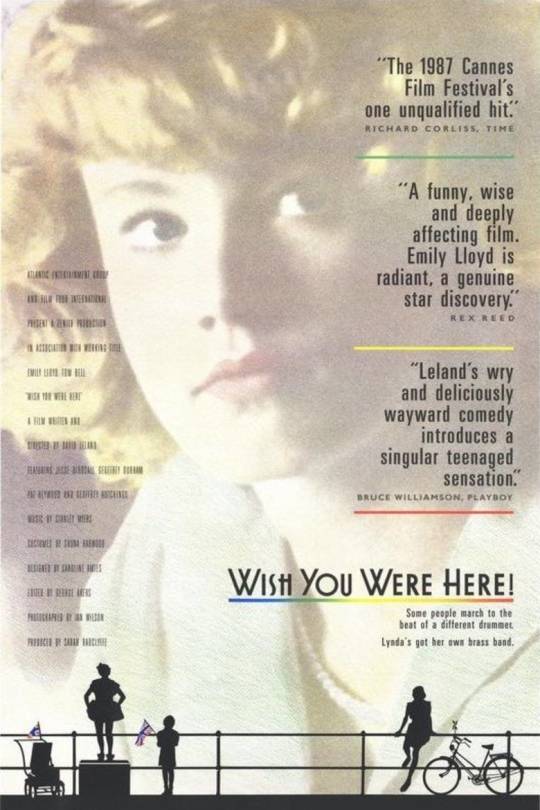


RIP David Leland (20.4.1941 - 24.12.2023)
"As I’d left school with no qualifications at all, I was searching for something that I could do that didn’t involve qualifications. I couldn’t go to art school because you had to have an O or A level in art but I discovered that you didn’t need any dreaded qualifications to go to college to study to become an actor and I thought, yes! There we go! I was born to be an actor!"
"I think the writing started during the time I was training to be an actor. We were taught what was known as the Laban Carpenter psychology of movement, theory of movement. It had a language, a jargon attached to it, and we were encouraged to write scenarios – Al Pacino talks about this - which would give you a sensation of how other people behave. We would write scenarios and then perform them to each other and writing became a kind of secret obsession."
#david leland#rip#death ment tw#film director#character actors#wish you were here#tales out of school#big breadwinner hog#made in britain#birth of a nation#RHINO#flying into the wind#mona lisa#scars of dracula#one brief summer#time bandits#the hitchhiker's guide to the galaxy#beloved enemy#psy warriors#it speaks to Leland's powers as a writer that his earlier acting career seems to be almost forgotten now; many actors turned writers are#considered with their writing credits a secondary incidental to their acting‚ but Leland is being celebrated as a writer and director (and#quite rightly) with his acting nearly unmentioned. i bring this up only bc i was first introduced to him as an actor; as a supporting#player in the incendiary Big Breadwinner Hog. it was some years later that i first saw his Tales Out of School and made the connection;#those plays had an incredible impact on me and stand as some of the finest single dramas ever produced in the UK. all concerning schooling#or a lack thereof‚ children and teens falling through the cracks of a society that lacked the resources and the empathy to deal with them.#empathy was not in short supply for Leland‚ whose work consistently throbs with pity (Flying...)‚ with rage (Made in..)‚ with desperation#(RHINO) but which is just as often funny as it is affecting (Birth...). a beautiful writer and a tremendous champion of others (he became#one of the most vocal guardians of Alan Clarke's legacy after the director's death‚ he was instrumental in the very early stage careers of#Jim Broadbent and Victoria Wood‚ he tirelessly worked to enhance the voices of new writers actors and performers of all kinds)#a very good and decent man by every account‚ and a beautiful spirit in a sometimes ugly business. rip
5 notes
·
View notes
Text
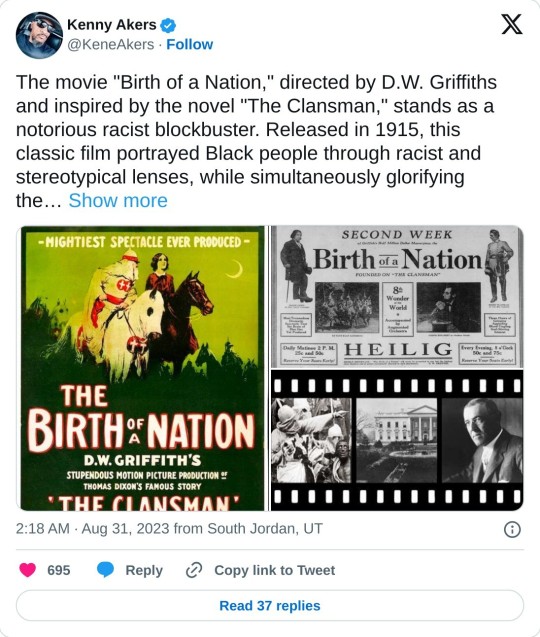
#racism in american history#birth of a nation#trumpets#maga#white supremacy#systemic racism#Black Lives Matter
3 notes
·
View notes
Text
4 notes
·
View notes
Text
Tucked away in an amendment to the FY2023 U.S. defense authorization bill is a rare instance of congressional bipartisanship and a tribute to U.S. President Ulysses S. Grant.
If approved, the measure would posthumously promote Grant to the rank of General of the Armies of the U.S., making him only the third person – along with John J. Pershing and George Washington – to be awarded the nation’s highest military honor.
As Executive Director of the Ulysses S. Grant Presidential Library, I believe that the promotion would be much more than a symbolic nod to a great military general. Rather, it would highlight the overlooked legacy of a man who fought to end the last vestiges of slavery.
OUTBREAK OF CIVIL WAR
During the Civil War, Grant rose to fame as a decisive leader who was willing to doggedly pursue Confederate armies and avoid retreat at all costs. He first gained his reputation for tenacity with Union victories at Shiloh, the Battles for Chattanooga and the Siege of Vicksburg.
Like most white Northerners, Grant signed up to fight for the Union – not for emancipation.
But by 1862, the freedom of enslaved African Americans had become vital to the Union war strategy, if not yet its cause.
A year before President Abraham Lincoln signed in 1863 the Emancipation Proclamation that freed enslaved people in the Confederate states, Grant oversaw the establishment of refugee, or contraband camps, throughout the Mississippi Valley. Those camps provided basic housing, food and work for Black men and women who had fled from slavery.
Grant also administered the enlistment of African American men into United States Colored Troops units during the Vicksburg campaign.
In March 1864, Lincoln appointed Grant to the rank of lieutenant general and ordered him to take on the Confederate Army in Virginia, a task at which numerous other Union leaders had failed.
At this point during the war, Grant assumed the role of chief strategist for the entire Union war effort. It took the next 13 months of fighting during the Overland campaign before Confederate General Robert E. Lee surrendered to Grant at Appomattox on April 9, 1865.
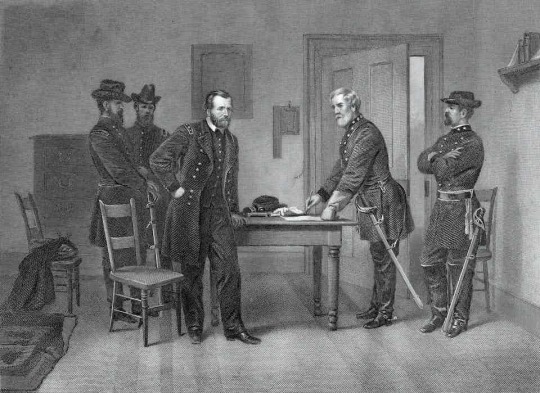
In this illustration, Gen. Ulysses S, Grant, left, accepts the surrender of Gen. Robert E. Lee. (Getty Images)
After the Federal victory, many Americans hailed Grant as the man who saved the Union.
But Grant was magnanimous in victory.
Multiple times during the war he honored the dignity of his defeated adversaries, most famously at Appomattox, where he did not require Lee to hand over his sword, as usually required. Grant also allowed Confederate officers to keep their sidearms and horses.
Lee appreciated Grant’s actions, remarking: “This will have the best possible effect upon the men … it will be very gratifying, and will do much toward conciliating our people.”
IMPACT OF THE ‘LOST CAUSE’
But after the war, the conciliatory feelings vanished.
Southern partisans constructed the narrative of the “Lost Cause.” It held that the root of the Civil War was not slavery, but the rights of states to control their own destinies. It further held that the Union victory had nothing to do with Confederate character or leadership, but rather the Union’s sheer numbers and superior resources.
In this Lost Cause narrative, Grant was seen as a bumbling butcher devoid of any meaningful strategic vision, who succeeded only by mercilessly throwing more soldiers at his enemy. It also revived the old rumors of his excessive drinking.
In this storyline, Grant’s foil was always the courtly gentleman, Robert E. Lee. The hagiography of Lee demanded Grant’s inferiority.
By the early 20th century, the Lost Cause was no longer isolated in the South and had spread across America. Crowds flocked to see the racist anti-Reconstruction “Birth of a Nation” in movie theaters, and during the World War I rush to build military bases, the Army named 10 of them after Confederate generals.
PRESIDENT GRANT’S FIGHT FOR EQUALITY
Grant served as President from 1869 to 1877 during a time when white Southerners proved hostile toward federal Reconstruction measures that sought equal rights for recently freed enslaved people.
Grant saw his role of enforcing these policies as an extension of his wartime duty and necessary to protect the gains of the Union victory, especially the newly established rights for African Americans.
He used the resources of the federal government to crush the Ku Klux Klan, established the Department of Justice to investigate civil rights abuses and signed the Civil Rights Act of 1875.
GRANT’S LATEST CAUSE
In recent years, the American public has questioned the Lost Cause and taken steps to mitigate its pervasiveness throughout the U.S.
Southerners themselves have chosen to remove Confederate leaders from town squares and state flags. The U.S. Army has established a Naming Commission to rebrand Confederate-named bases.
It is telling, too, that Grant’s Presidential Library is now located in Mississippi, a Deep South state he once conquered.
It remains to be seen whether the request made to elevate Grant’s rank by U.S. Senators Sherrod Brown of Ohio, a Democrat, and Roy Blunt of Missouri, a Republican – along with GOP U.S Rep. Ann Wagner – will be finally approved by Congress as part of the FY2023 National Defense Authorization Act.
Either way, in my view, a thoughtful reconsideration of Grant’s wartime and post-war contributions is long overdue.
#us politics#us history#Anne Marshall#news#Ulysses S. Grant Presidential Library#national defense authorization act#General of the Armies of the U.S.#John J. Pershing#George Washington#american civil war#american slavery#president ulysses s. grant#Emancipation Proclamation#president abraham lincoln#United States Colored Troops#confederate surrender#Lost Cause myth#reconstruction#birth of a nation#ku klux klan#Civil Rights Act of 1875#department of justice#Grant’s Presidential Library#Sen. sherrod brown#sen. roy blunt#Rep. Ann Wagner#2022#the conversation
14 notes
·
View notes
Text
the cherokee nation should be suing the us govt rn, all "look if you won't seat our delegate in the house then can we have all our land back"
#cherokee nation#treaty violations#settler colonialism#birth of a nation#house of representatives#congress#representation#america is bad
16 notes
·
View notes
Text
Ku Klux Klan - a history of brutal murder
The brutal history of the Ku Klux Klan from its founding in 1865 and its record of murder exposed by TV historian Tony McMahon
Flaming crosses and white hoods are what comes to mind when we hear the words: Ku Klux Klan. Since 1865, this organisation has been responsible for thousands of murders, lynchings, and beatings. It’s tentacles have extended into corridors of power. Two state governors who tried to bring the KKK down saw their own political careers destroyed. So, let’s look back at over 160 years of the Ku Klux…

View On WordPress
#anti racism#Birth of a Nation#Black Lives Matter#Chilton Jennings#Gone with the Wind#Governor Holden#Governor Walton#history#Jack Walton#KKK#Ku Klux Klan#The Klansmen#Tulsa massacre#Wild West Kevin Costner
5 notes
·
View notes
Text
Midsommar is just Birth of a Nation for TERF-adjacent white women and I will maintain this stance to the grave.
4 notes
·
View notes
Text
youtube
Birth of a Nation
Kamil Polak
Poland, 2001
No, it's not THAT Birth of a Nation- although the title is a reference, so let's start by a recap of the film it calls back to. If you haven't yet heard of the 1915 movie by D.W. Griffith, the basic facts are that it was a horrifically racist drama depicting the birth of the Ku Klux Klan as the true national identity of the US despite the South losing the Civil War. Trigger warnings for everything anti-black, from slurs to blackface. It's a white supremacist's favourite film.
(again, not THIS film.)
The thing Hollywood does not like to admit is that Birth of a Nation was significant in shaping cinema as much as anti-black racism was significant in shaping society. Just check out the reviews on Rotten Tomatoes- they're all carefully worded paragraphs about how the topic is unforgivable but the movie is unforgettable. Troubling masterpiece. Epic, but controversial.
So, with that in mind, what's going on with the same title for this animated short? Is it a tribute? Is it also racist?
No, you can watch it without worrying about that- and while perhaps part of the experience of this film is to be concerned about the title, I'm happy to put you at ease straight away. Polak's 'Birth of a Nation' uses the title mockingly, and his choice of graphic and sound design for the characters emphasises the joke.
"Design for the characters?" yeah, I hesitated with that phrasing, you're probably worried to hear that, too, since the film touches on racism. Oh no, what does that mean?
Trust me, it's fine. Just watch it. To be honest, if I didn't give you the preface or translate the title, you probably wouldn't have even thought twice about it. Make sure to turn the sound on- it's one of those movies where it's absolutely necessary.
Oh, one more note. This is early computer animation, created by a film student with very limited resources and barely sufficient processing power. This has definitely influenced the design. It doesn't make the minimalism any less clever, though.
5 notes
·
View notes
Text
Classified X... declassified
Classified X opens with Black people being presented in early American film. You’ll be surprised to find that the Black people in these films are presented as stupid, dancing, comedic relief characters. And if that’s true, you’ll also be surprised to find out that the sky is blue.
Melvin Van Peebles recounts coming of age at the end of the Second World War. When America realized that the Allied Powers could not win the war without the help of the people that they enslaved, lynched, and mocked for a couple of hundred years, they decided to instill in African Americans a source of patriotism. “The New Negro” was represented in film. Van Peebles points to Birth of a Nation as a movie that many people identify as the first example of racism in film. Of course, why would a country already embroiled in racism leave such ideals out of the entertainment?
The “New Negro” was, a Van Peeble pointed out, nothing without the white hero. White people were even playing light skinned Black people in cinema. The truth was, racism hadn’t disappeared in movies, it was just dressed up.
In the segregated south, African American film houses presented their own films, popular for their positive portrayals of Black people. However, Van Peeble states that white supremacy was so ingrained in American culture that even Black people bought into it. Antagonists were oftentimes darker than the hero; of course, in today’s society, light skinned people are seen as softer, more delicate as compared to the rougher, more abrasive dark skinned still…just listen to rap music.
However, Black people were so desperate for positive portrayals in white films that Casablanca became such a hit in Black neighborhoods because people loved Sam so much.
Of course, Black people are innovators, inventors. And just as in other facets of history, white people stole our ideas, routines, and looks. In an attempt to appease us (i.e, as Van Peebles reveals, to get our money), Black people returned to film. Of course, we were pushed to the background, stereotypes being forced upon us once again. Racism truly never disappears, it is just dressed up in a different fashion. Van Peeble describes how instead of settling for second class work given to him and other Black directors during the Civil Rights movement, he went to pioneer a new genre of film- the blaxploitation. Sweet Sweetback’s Baadasssss Song became required viewing for America’s public enemy number 1- the Black Panther Party… so of course that means Sweetback has been added to my watchlist. Blaxploitation proved that Black people could pop that bubble that white people had put us in. The problem now, as revealed by Classified X, isn’t the lack of Black films, it’s the lack of white cinemas that will play them. I know I’ve said it multiple different times in this blog post already- but racism dressed up in different clothing. Hopefully the work of visionaries inspired by the work of people like the Black Panther Party, civil rights leaders, and cultural visionaries like Van Peebles can inspire more Black people to take control of the entertainment, money, and representations coming into and out of the community.
2 notes
·
View notes
Text

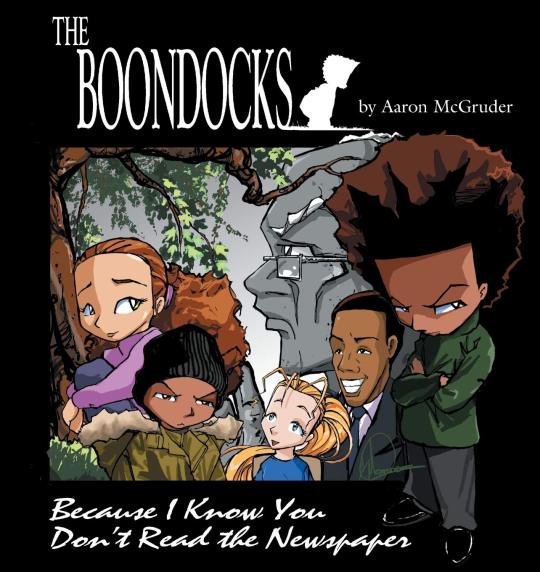
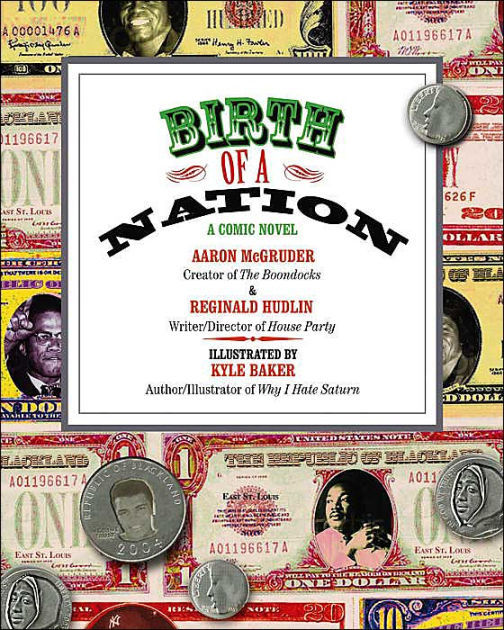
Happy Birthday to Aaron McGruder!
2 notes
·
View notes
Text
Going to try and make this a regular episode in my Temples of Light (Avatar) blog - The power of film, through the lens of an alternate universe: (I dare not post this on the Midjourney forum, because doubtful it would be approved!)
Movies are all about the heroes journey. Imagine one where we go back in time! Visualize a place where anti-heroes are redeemed, after coming face to face with their fallen nature, and seeing a hidden reality they were once blind to. And then allowed to atone for their sins in present day, as a new man or woman, born again, never again doomed to make the same mistake twice.
In today’s Temples of Light Time Travel, we explore the question, “What if Woodrow Wilson screened 2015’s Birth of a Nation at the White House, rather than the 1915 version?”
But alas, this is all fiction. The dead can never go back and redeem their past. That is the job of the living; to not make the same mistakes as those who never connected with higher consciousness, now stuck in the tombs of their ancestor’s shame!
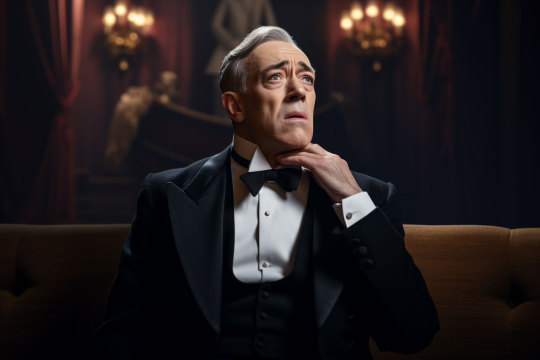
Upon his first private screening, Woodrow Wilson had an earth breaking awakening, shattering his heart wide open, after connecting to the power of 21st century cinema in the early 20th century. Somehow, a copy of Nate Parker’s 2015 Birth of a Nation, began playing in place of D. W. Griffith’s 1915 version.

Because filmmakers of every generation continue to improve upon their craft, advancing their power to put the audience in the shoes of “the other,” Wilson had an awakening of consciousness, that brought into question his entire life path, and the respect he held for those who raised him.
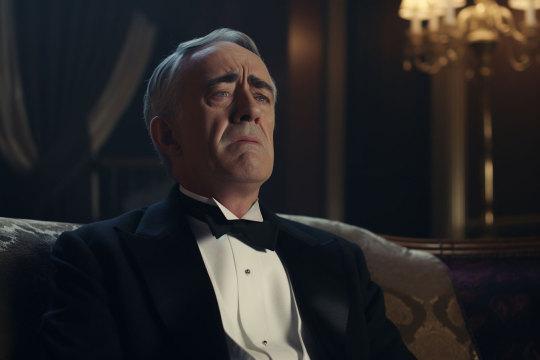
This was painful for him to watch, knowing now about his complicity in a racist system, his ancestors helped defend and build. He wanted to turn away, but something inside him could not. Film had turned him into an Avatar, a pure witness that had now become Nat Turner, wearing his shoes, feeling his torment, pain, sorrow, and yes, rage!

Like the hero within Nat Turner awoke, bearing witness to the evil he was complicit in serving, Woodrow awoke for the first time in the White House theater, knowing now what he must do, to end the insanity. He had to share this film, not only with his staff, allies and close friends, but with the entire American people.
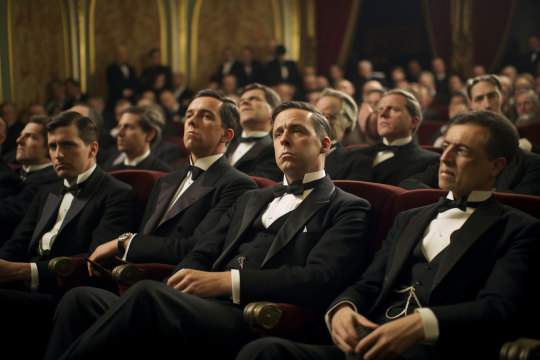
The next day at the White House Screening of Nate Parker’s Birth of a Nation, Woodrow (seated far right) knew some of his so called friends would walk out. It was a perfect test, to see what kind of company he now wanted to keep.
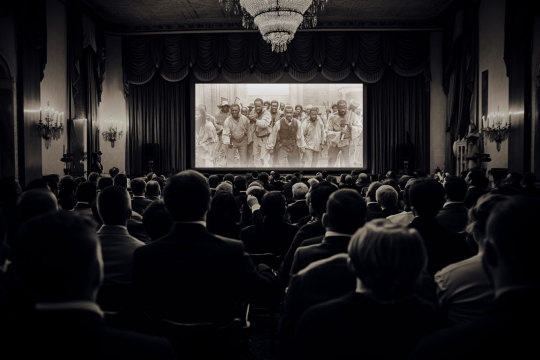
The vivid color images, stunning sound and higher frame rate elicited a powerful reaction from the audience, most of whom could not take their eyes off the screen. At times, fits of crying and angry shouts erupted from viewers, compelling some to remain seated for the entirety of the film, while leading others to leave. By the end of the film, many who endured had a cathartic change of heart just like Woodrow.
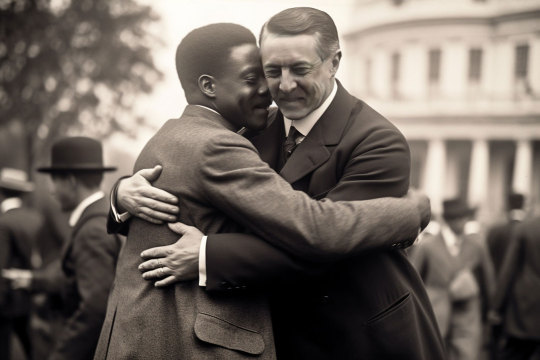
He knew he had to take action, and first thing he could think of, was invite his old nemesis back to the White House; William Monroe Trotter, to make amends and change course, offering him a position in his administration. (Woodrow Wilson hugging one of William Trotter’s Civil Rights associates after offering his sincere apology.)
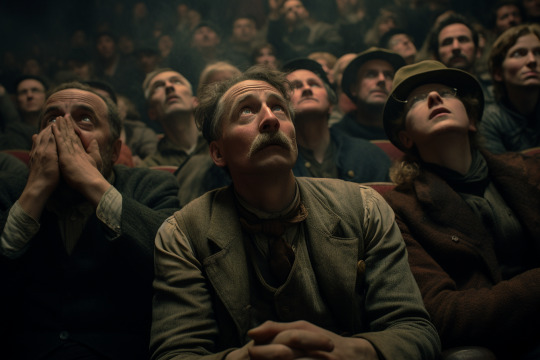
Next on Woodrow’s agenda, to screen Parker’s Birth of a Nation on every screen in America, which infuriated D.W. Griffith. Soon the president started getting death threats, but this did not deter him. He was on the heroes journey!
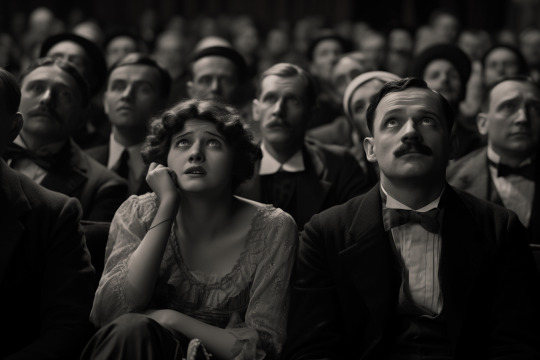
Audiences across America were mesmerized by the film, many having the same breakthrough in consciousness the president had.
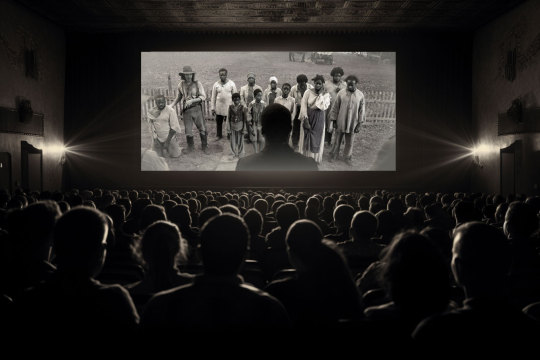
In city after city across America, the power of film was doing its work; awakening humans to higher consciousness.
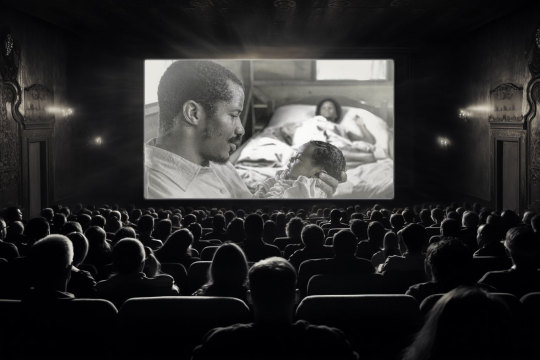
(Nat Turner played by Nate Parker in Birth of a Nation)
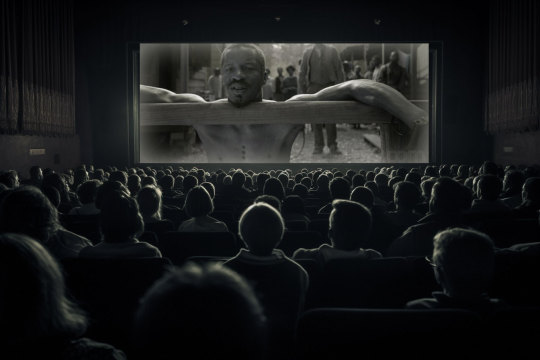
The horrors of slavery for all to see, which was glorified in D.W. Griffith’s film.
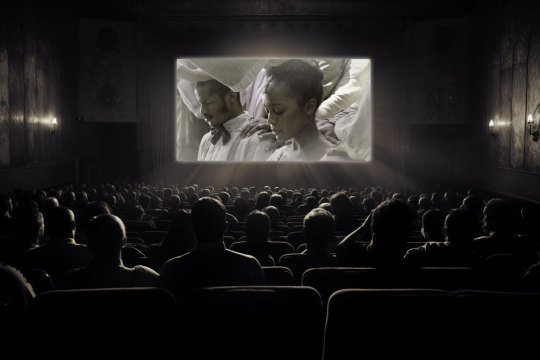
Audiences transported like an Avatar into the shoes of “the other”.
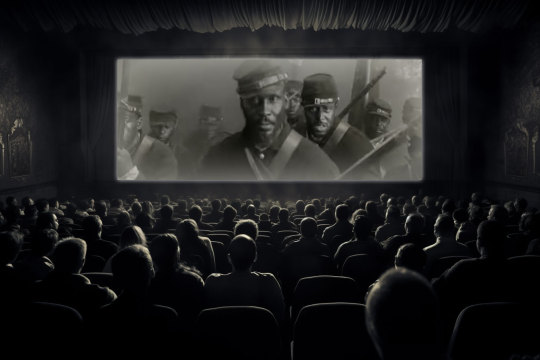
The most powerful scene in Birth of Nation at the very end; freed slaves going into battle against Confederate troops in the American Civil War.
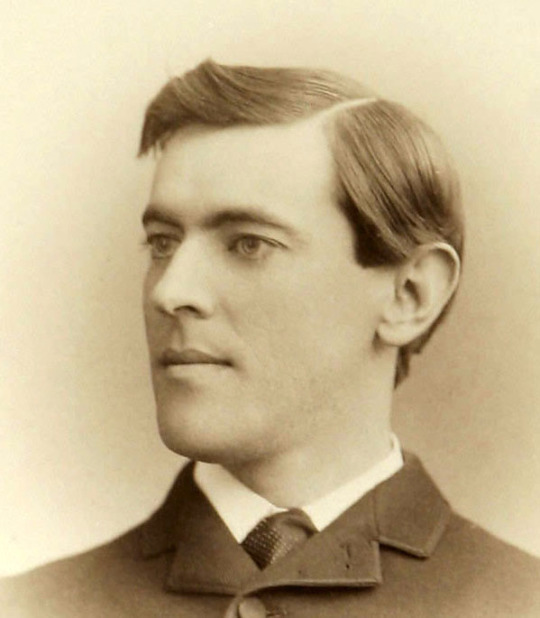
A young Woodrow Wilson around the time he was once a professor at Wesleyan University.
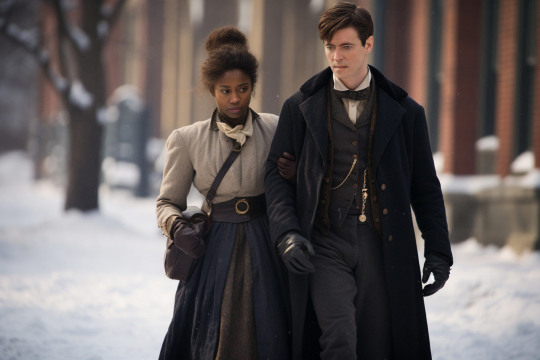
Wilson was not done, he thought back to that young man he used to be, brainwashed with racist ideology by parents just as blind as he once was. He wished he could go back in time, back to his days teaching at Wesleyan University. He was reminded of a beautiful student named Isabel, who had taken an interest in him, but he had to fight away feelings of attraction for her; their love would be forbidden. If only he could have gone back, as the changed new man he was today. He would find the moral courage to stand up to his racist father, declare his love and ask for her hand in marriage.

And if only he had another life to live, to atone for the one he was now ashamed of. He would stand up and be a real man, on a heroes journey to redeem the soul of America. No longer inhibited or stopped from doing what was righteous.
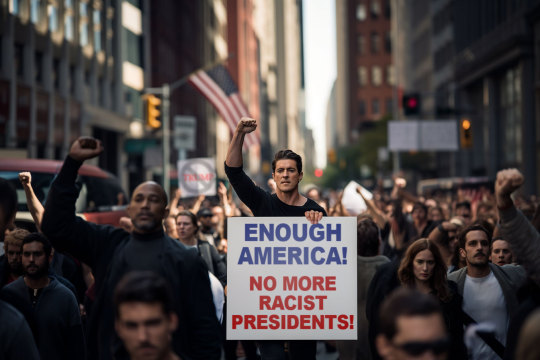
He would take a stand in the 2024 election, and do everything in his power to assure no more racists were ever elected president of the United States again!
1 note
·
View note
Text
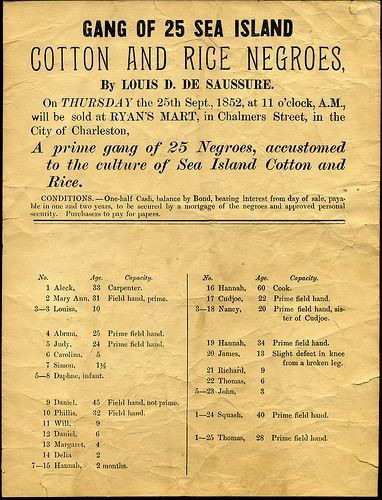
#NeverForget
#never forget#chattel slavery#slavery#american history#black history#sea island#for sale#birth of a nation
1 note
·
View note
Text
**Elaborate in the comments or tags**
#i just watched intolerance#didnt mind the message except when i learned it was made in response to birth of a nation#now i cant stop thinking about the irony#intolerance#birth of a nation#dw Griffith#movies#cinephile#old hollywood#gone with the wind#the philadelphia story#tár#citizen kane#anna christie#the grand hotel#i want to be alone#whatever happened to baby jane#double indemnity#Morocco#queen christina#best years of our lives#ninotchka#a streetcar named desire#seven year itch#blonde#marilyn monroe#greta garbo#cate blanchett#vivien leigh#carol
1 note
·
View note